Have to, don't have to, must, mustn't (1) Type the correct answer into the box Use contractions where possible Youhave a passport if you want to travel abroad Youarrive late Youstand on the plane There are seats for everyoneMODALS V3 Practice Test Ought to (Should) Have / Must Have Needn't Have / Didn't Have To 1 We should have taken must have taken (take) the wrong turn I don't think we are close to Wyoming at all 2We get up early When the traffic light turns red, you stop your car I have an important exam tomorrow I study hard for it

Must Mustn T Have To Don T Have To Exercises
Have to and must exercises
Have to and must exercises-Subject Exercises 1 Modals Exercises 2 Can vs Be Able To With Tenses 3 Can vs Could Exercise 4 Can Can't Exercises 567 Mustn't vs Don't Have to Exercises 1 / 2 / 3 10 Must vs Have to / Has to Exercises 1 / 2 / 3 11 Must / Mustn't / Needn't / Have to 1213 Modals With Passive Voice 1 / 2 14 Mustn't vs Needn't vs Can't SimilarExercise on the modal verbs must and have to Complete the sentences using the words listed in the box below, then click the "Check" button to check your answers
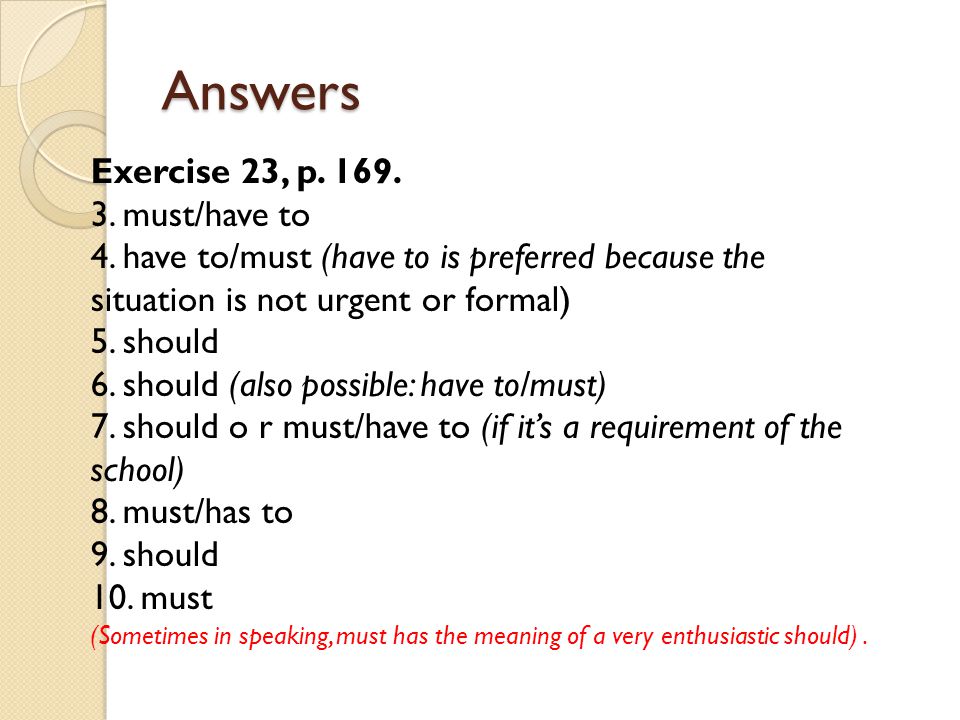



Modals Part Ppt Download
Modals exercise Revising verb forms to express obligation 2 You're such a fun at parties, he invited you 3 You get offended, he may have forgotten to ring you up 4 You think there's something wrong with you It was Jerry's mistakeAuxiliary verbs exercises elementary, intermediate and adavanced level esl Index of contents Can / could exercises May / might Must / have to Shall / should Will / would Mixed modals exercises Had better HomeMust expresses an opinion an inference, a conclusion, based on known details Must have expresses an opinion about an earlier (past) situation A CONCLUSION The car driver must have panicked when he saw the buses moving in on both sides The bus passengers must have heard a crunch (sound) The car passengers must have escaped out the back (No other exits
The most important difference to remember when forming questions with these verbs is their structure Always note that "must" uses an inversion, whereas "to have to" takes on the relevant conjugation of the present tense of "to do" If you would like any more information on this grammar point, sign up for free to ABA English andWhile questions with "must" are grammatically correct, it is more usual nowadays to use "have to" for questions There is no past form of must for obligation We had to show our passports at the border We weren't allowed to use calculators in the exam Or, we couldn't use calculators inI must go to the doctor I must get up early tomorrow You mustn't call me before 8 It is used to describe something that the speaker thinks is necessary to do You must eat less candy I must try to do more exercise We can also use must to express strong advice You must see the new film;
No s Modal verbs don't add s after he/she/it He must come with us (NOT He must comes with us(2) Does / have to, etc Correct and dicuss any mistakes (Add 5 to 10 minutes)The modal verbs "must," "have to" and "have got to" show that something is not optional;




Test English Prepare For Your English Exam




Must Have To Exercises
Learn English > English lessons and exercises > English test # Should/ have to/ must > Other English exercises on the same topic Modals Change theme > Similar tests Modal may/might Placement test 1 Modal can (video) Modal verb must / have to Modal can/could Must / Have to Modal verbs Modal verbsStart studying Must/mustn't, should/shouldn't, have to (EXERCISE) Learn vocabulary, terms, and more with flashcards, games, and other study toolsPAGE 94 • MODAL VERBS 43 Must/have to, mustn't/don't have to 1 We use must when the speaker thinks it is necessary or important to do an action You must go (= It is important that you go) We make negatives, questions and short answers like this You mustn't go Must you go?




Distributives Both Either Neither Worksheet English Grammar Worksheets Worksheets Grammar Worksheets
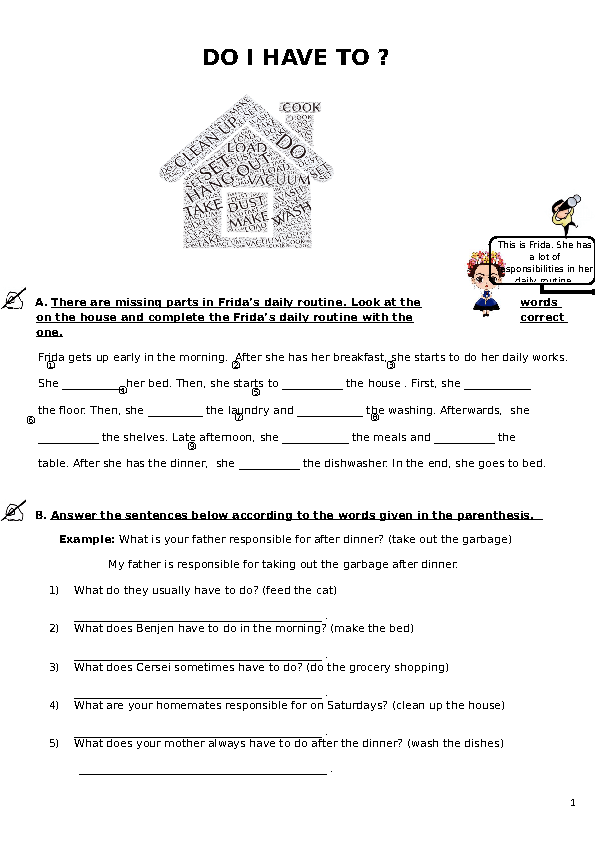



57 Free Have To Worksheets
You can find out below Good luck!10 Must vs Have to / Has to Exercises 1 / 2 / 3 11 Must / Mustn't / Needn't / Have to 1213 Modals With Passive Voice 1 / 2 14 Mustn't vs Needn't vs Can't Similar Exercises MODALS V3 Practice Test Ought to (Should) Have / Must Have Needn't Have / Didn't Have To Should Have Done Drag and Drop Exercises Modals Drag and Drop 1 / 2 / 3 Other Drag & Drop Grammar Exercises Multiple Choice Exercises01 Must should mustn't shouldn't rules 02 must exercises English exercises 03 must word order examples 04 must exercises exercisesmust 05 must modal verbsexamples Should exercises 06 should modal verbs exercise 07 should modal auxiliaries word order 08 should modal auxiliaries word order 09 should modal auxiliaries word order 10 mustn´t or shouldn´t exercise
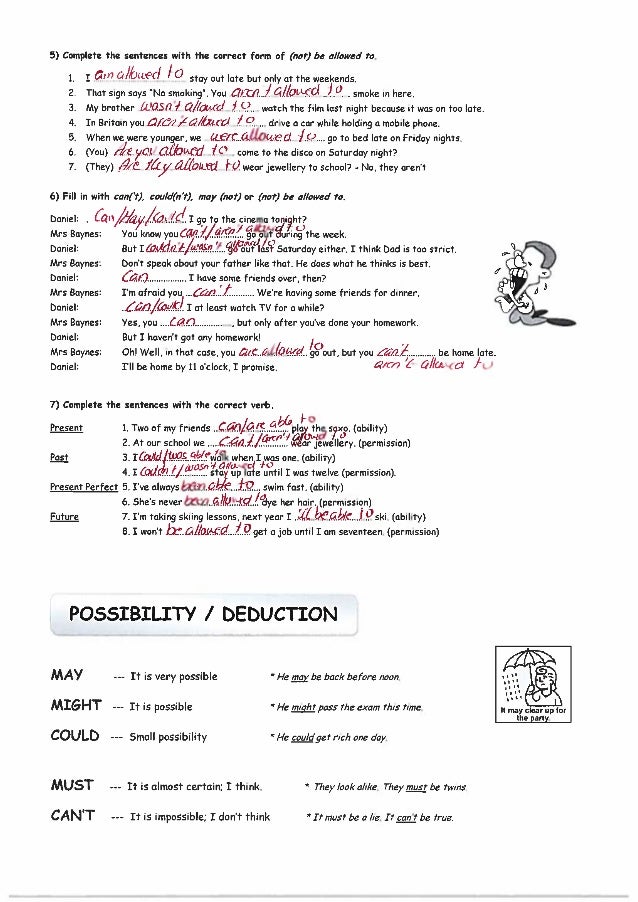



Modal Exercises Answer Key




Have To Must And Should For Obligation And Advice Learnenglish Teens British Council
Questions and answers with did With regular verbs the simple past is formed by just adding "ed" to the infinitive (basic form);With verbs ending with a final "e", just add ad 4 Have to and must Exercise 3 Exercise 1 Exercise 2 47 The past progressive is used when we talk about an action that was in progress at a MUST (Necessity) MCQ Grammar Quiz Test Exercise Your answers are highlighted below You smoke here There is a 'No Smoking' sign by the door Relax, it's the weekend!



1




Modal Verbs Obligation Necessity Prohibition Multiple Choice Worksheet
EnglishClub Learn English Grammar Verbs Modals have to, must Quiz have to, must Quiz You can do this grammar quiz online or print it on paper It tests what you learned on the have to, mustA) could complete B) was able to complete C) must have completed D) should have completed E) could have completed All Modal Verbs Test Exercises Multiple Choice Questions With Answers Advanced Level 4 Take this test ONLINE choicequestionswithanswersadvancedlevel4/6 You mustn't be late for class 7 You should get some new trousers 8 You don't have to eat it all 9 He shouldn't worry about it Grammar videos Have to, must and should for obligation and advice – answers
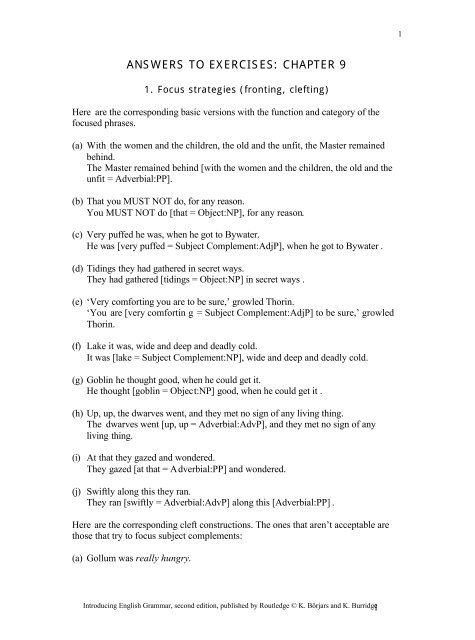



Answers To Exercises Chapter 9




Modal Verbs Worksheets And Online Exercises
Modal verbs 2 pdf exercises Modal verbs worksheets Can, can't, could, couldn't, must, mustn't Modal verbs 1 Modal verbs 2 Modal verbs 3 Modal verbs obligation Ability and permission worksheet Modal verbs pdf handoutShould Must Quiz Time limit 0 Quizsummary10 Must vs Have to / Has to Exercises 1 / 2 / 3 11 Must / Mustn't / Needn't / Have to 1213 Modals With Passive Voice 1 / 2 14 Mustn't vs Needn't vs Can't Similar Exercises MODALS V3 Practice Test Ought to (Should) Have / Must Have Needn't Have / Didn't Have To Should Have Done Drag and Drop Exercises Modals Drag and Drop 1 / 2 / 3 Other Drag & Drop Grammar Exercises Multiple Choice Exercises




5 Must Use Exercises For Teaching Esl Modal Verbs




Conjunctions Exercises With Answers Examplanning
Must/mustn't, have to/don't have to – form Download fullsize image from must/mustn't Use must infinitive without to Must is a modal verb, and modal verbs are followed by infinitive without to I must go to the doctor (NOT I must to go to the doctor;Have to, must Have to is NOT an auxiliary verb (it uses the verb have as a main verb) We include have to here for convenience Must is a modal auxiliary verb In this lesson we look at have to, must and must not, followed by a quiz to check your understanding have toWe use have to / must / should infinitive to talk about obligation, things that are necessary to do, or to give advice about things that are a good idea to do Mus t and have to are both used for obligation and are often quite similar They are both followed by the infinitive I must go now / I have to go now




Modal Verbs Exercises With Answers Doc




Modals Exercises For Class 9 Cbse With Answers
Complete the sentences with have to, don't have to or mustn't She go to school tomorrow It's a holiday no obligation, 3 rd person singular → don't have to In Australia you drive on the left obligation from outside (the rules) → have (got) to;Free English Course Should vs Must Test This should vs must test your understanding of the difference between advice and obligation Do you know when to use each modal?Los verbos modales "can't have" / "must have" / "might have" Verb conjugation practice Contenido de suscripción Los verbos modales must, have to, should, should have Modals must, have to, should, should have passive Dictation exercises focus on grammar Contenido de suscripción Los verbos modales must, have to, should, should have




Must Have To Worksheet Linguistic Typology Language Mechanics




Modal Verbs Exercises With Answers Doc Modal Auxiliary Verbs Worksheet For Class 7
We use "must have", "can't have" and "might have" in the same way as the present perfect the action we are describing happened, or did not happen, in the past and is still true in the present "must have" we believe the action definitely happened "She must have left the house by now;No s Modal verbs don't add s after he/she/it He must come with us (NOT He must comes with usIt's nearly 11 o'clock"



English Worksheets Must Mustn T Worksheets Page 1



1
Study Zone / Level 330 — Lower Intermediate / Grammar Topics / Modals of Necessity 1 Must, Have got to, Have to Modals of Necessity 1 Must, Have got to, Have to Choose the correct answer for each sentenceSubject Exercises 1 Modals Exercises 2 Can vs Be Able To With Tenses 3 Can vs Could Exercise 4 Can Can't Exercises 567 Mustn't vs Don't Have to Exercises 1 / 2 / 3 10 Must vs Have to / Has to Exercises 1 / 2 / 3 11 Must / Mustn't / Needn't / Have to 1213 Modals With Passive Voice 1 / 2 14 Mustn't vs Needn't vs Can't SimilarSee all modal verbs exercises here Need more practice?




English Online Could Must Need Exercises With Answers All English Could Must Need Exercises Free And With Help Fun Exercise English Online Learn English




New Headway 4th Grammar Reference With Exercises And Answers
Must/mustn't, have to/don't have to – form Download fullsize image from must/mustn't Use must infinitive without to Must is a modal verb, and modal verbs are followed by infinitive without to I must go to the doctor (NOT I must to go to the doctor;You smoke inside It's illegal not permitted → mustn't Tonight the film is free You pay no obligation → don't have toModal Exercises with Answers Q Fill in the blanks using modals You _____ be rich to be a success Some of the most successful people I know haven't got a penny to their name I've redone this math problem at least twenty time, but my answer is not according to the answer key The answer of the book _____ be wrong
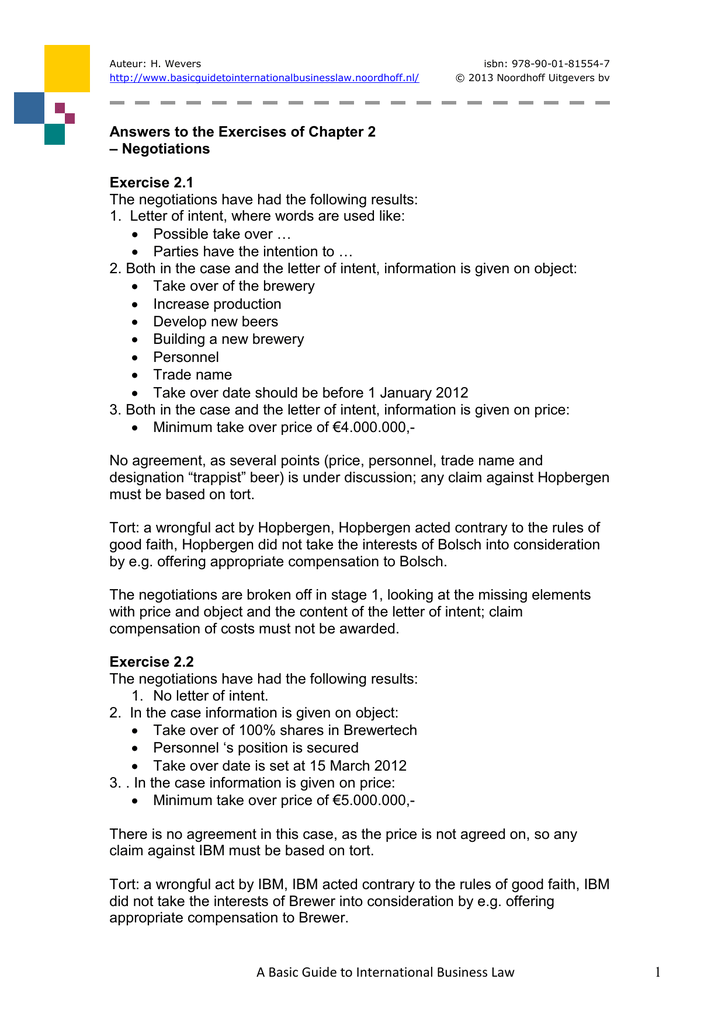



Answers Exercises Chapter 2




Must Mustn T Have To Don T Have To Exercises
It is necessary Must is the strongest and most serious modal verb of the three and is most common in writing It is unusual to use "must" in questions I must study tonightShould or Must A modal is an auxiliary (helping) verb that expresses ability, possibility, permission or necessity English modals include must, shall, will, should, can, could, would, may and might In this lesson, we shall be discussing SHOULD and MUST SHOULD and MUST express necessity(1) "I must study for the test" (2) "You must wear a seatbelt" Use mustn't when you mean that it is important NOT to do something Examples (1) "You mustn't forget about the test" (2) "You mustn't drive too fast" What must you do, and what mustn't you do for a




Can Must Should English Esl Worksheets For Distance Learning And Physical Classrooms




Test English Prepare For Your English Exam
"Must," "have to," and "need to" in the positive or question form are used to speak about responsibilities, obligations and important actions I'm having some trouble understanding this I must ask Peter a few questions She has to work with clients from all over the worldWrapup by having students compare answers with classmates, and then choose one or two students to write their answers on the board (1) have to;Should might can could have to must a) Ritu's flight from Morocco took more than 11 hours She _____ be exhausted after such a long flight She _____ prefer to stay in tonight and get some rest b) If you want to get a better feeling for how Raniganj is




Must Have To Had To Exercises Exercise Poster
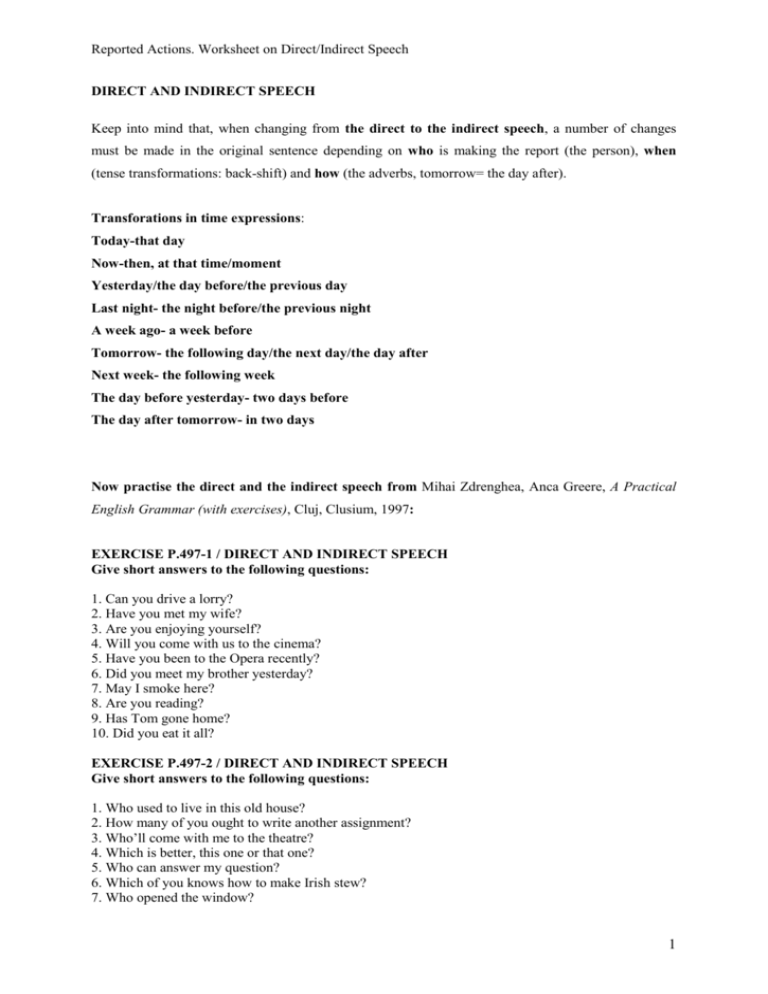



Direct And Indirect Speech
I'm Seonaid and I hope you like the website Please contact me if you have any questions or commentscontact me if you have any questions or comments2 We have to be there early 3 I must remember to call Dad 4 You don't have to pay 5 You should try this fruit salad!Grammar Challenge – 'should have' past participle practice activities Answers Exercise 1 Match the beginnings of the sentences to the correct endings 1 My girlfriend left me e I should have been nicer to her 2 She won't be able to finish her dinner g She shouldn't have ordered so much 3 This movie is really boring f




Pdf Telecharger Modal Verbs Multiple Choice Exercises Pdf Gratuit Pdf Pdfprof Com




Must Have To Exercises
Here you are the exercise You have to mark True or False based on the information you have just read You have one opportunity to answer correctly You can go back to check the text when you feel it's necessary When you have finished, click on "Check answersGet more Perfect English Grammar with our courses Welcome to Perfect English Grammar!Must or should exercises Must infinitive = it is necessary to do something For past tenses use had to I must stop the car They must stop the car I mustn' t stop the car Must n't (must not) infinitive = it is necessary not to do something The car is damaged You must repair it




Gs Must Have To Should Exercises 80
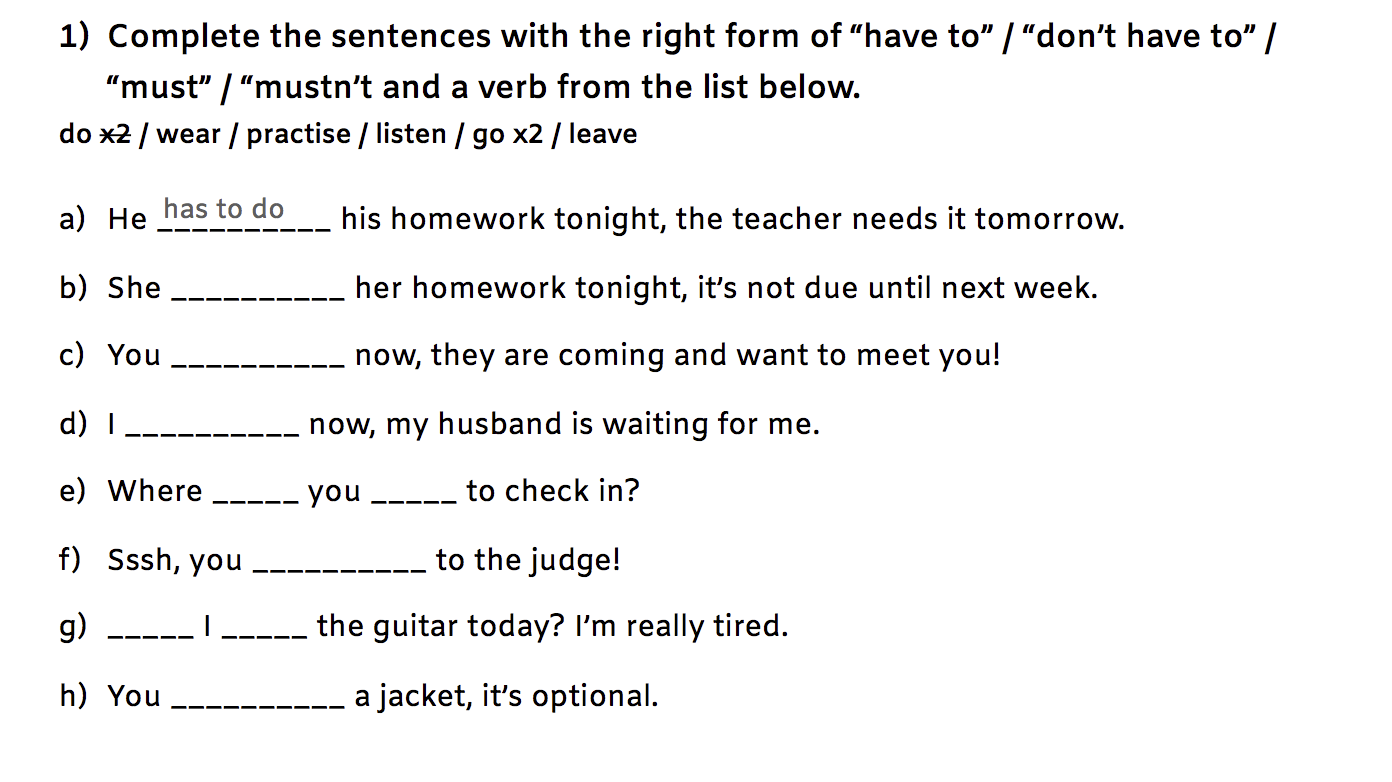



57 Free Have To Worksheets
~ Yes, I must 2 We use have to to talk about an action that is necessary because of rules or laws,Printable exercise on the use of 'must' and 'have to', for learners of English English Grammar Exercise MUST HAVE TO wwwlearnenglishtodaycom Complete the following sentences with 'must' or 'have to' (The answers are at the end of the page) 1 My boss needs this report urgentlyLive worksheets > English > English as a Second Language (ESL) > Modals > Modal Verbs Must and have to Modal Verbs Must and have to Select the correct option, drag and complete, match ID Language English School subject English as a
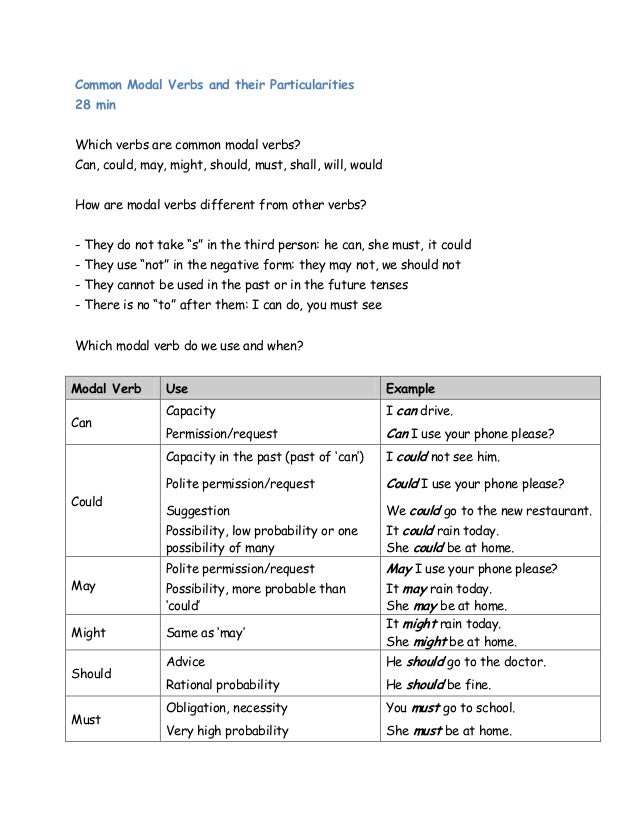



Should Have Could Have Would Have Exercises Pdf



In Plain English Should Must Or Have To
2 I must have to I don't know go away on business, my boss wants me to visit our firm in Japan 3 Don't be silly, you must have to I don't know take these tablets four times a day ! Modals Exercise For Class 9 CBSE With Answers PDF (a) 'HaS to' and 'Have to' are used to express some compulsion, necessity or obligation in the present or future tenses The expression 'had to' is the past tense of 'has to' and 'have to' and serves the same function Rajendra has to finish his work on time




Modals Exercises For Class 7 With Answers
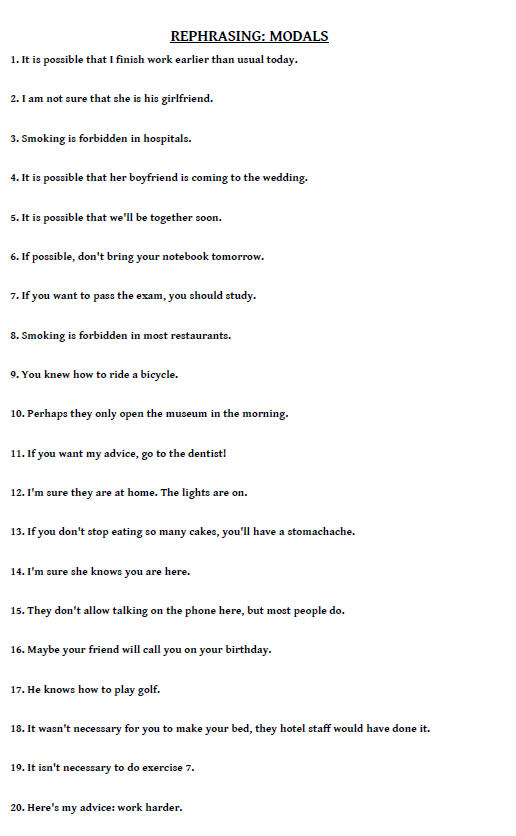



Rephrasing Modal Verbs Worksheet




Modal Verbs Should Ought To Have To Y Must
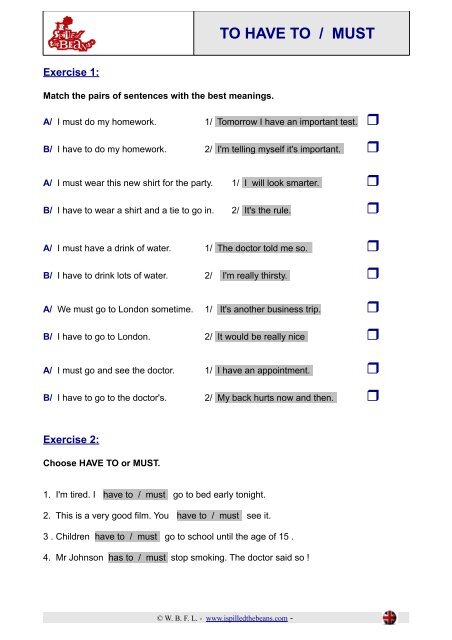



To Have To Must I Spilled The Beans
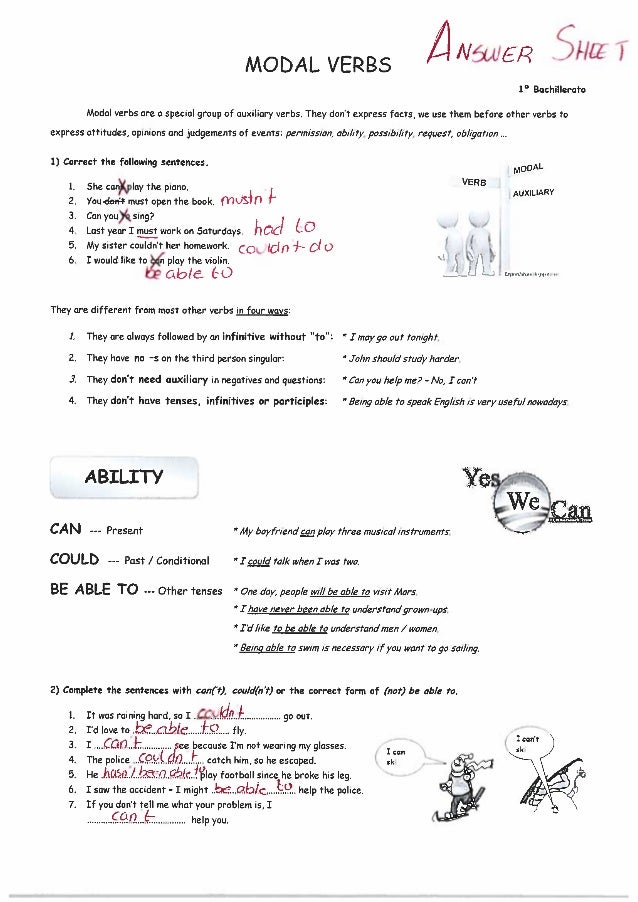



Modal Exercises Answer Key
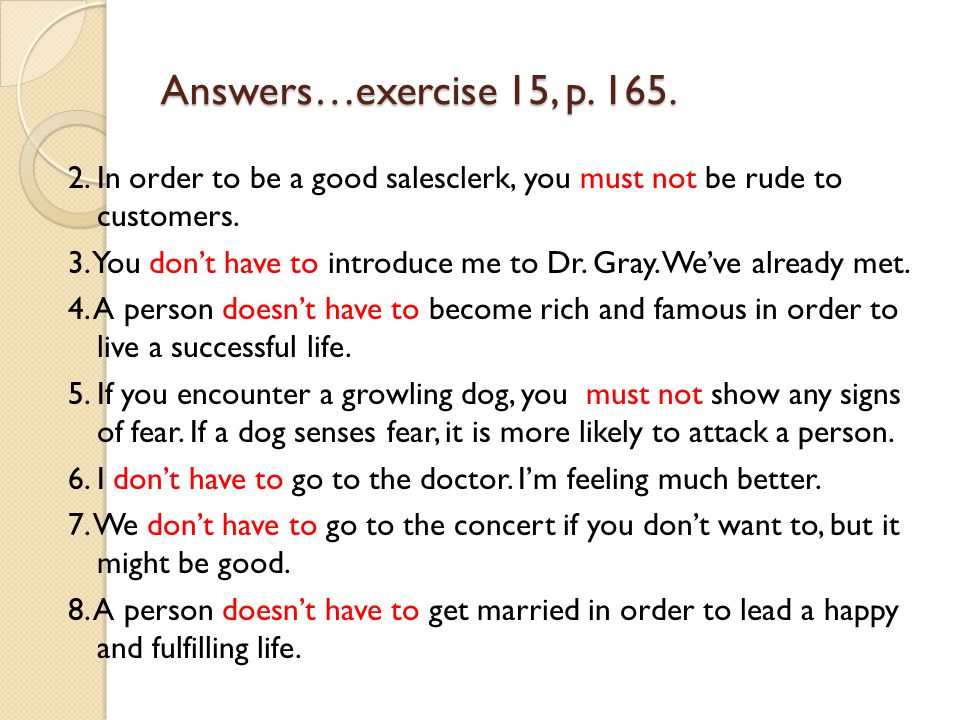



Modals Part Ppt Download
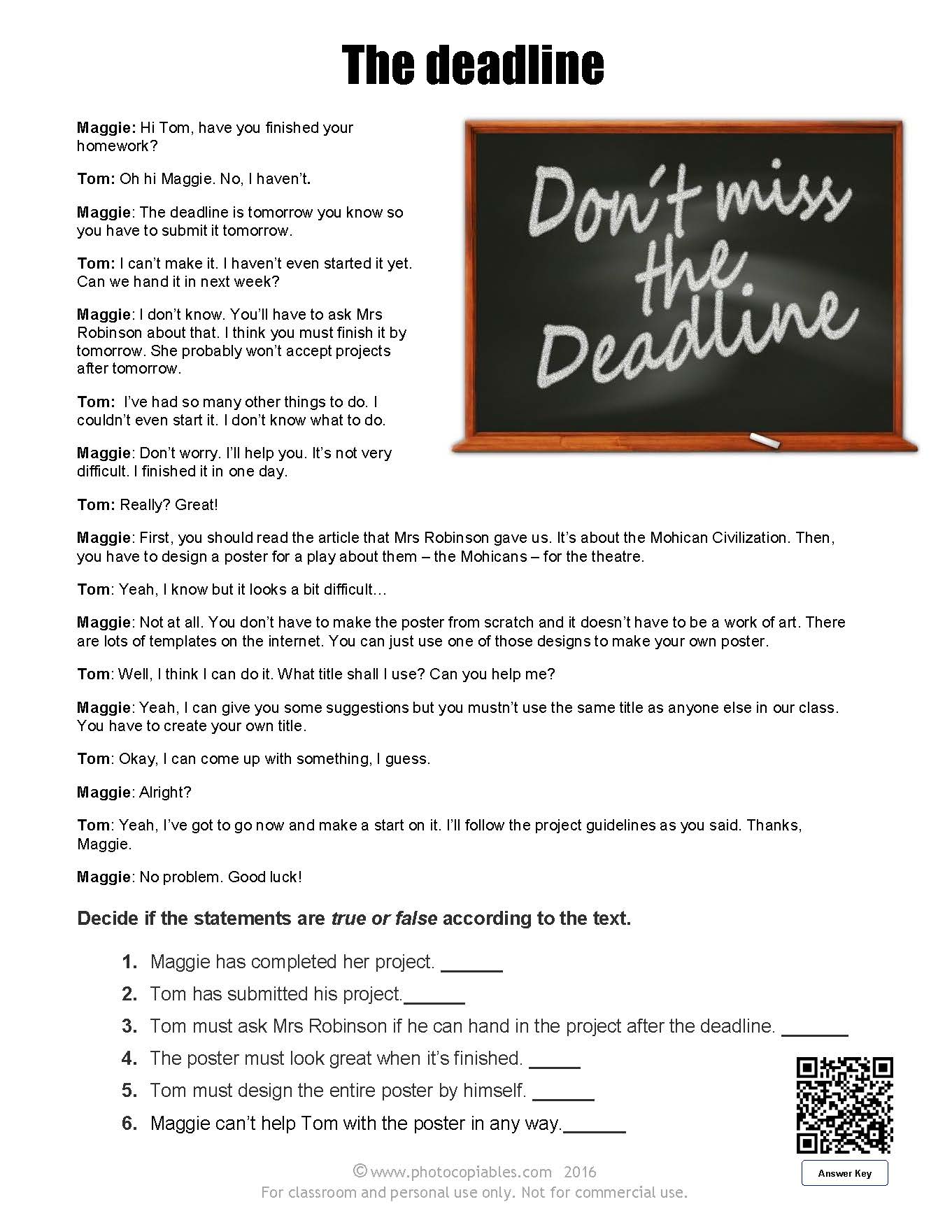



Modal Verbs Reading Text Photocopiables
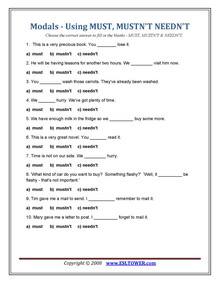



Must Mustn T Needn T Exercises Pdf Exercise




English Esl Must Or Have To Obligation Worksheets Most Downloaded 132 Results
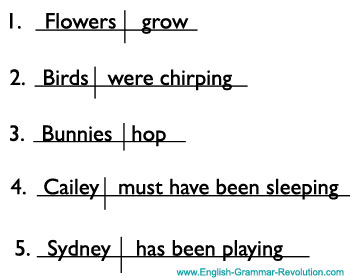



Diagramming Sentences Exercises Chapter 1




Modals Exercises For Class 11 Cbse With Answers English Grammar Cbse Tuts
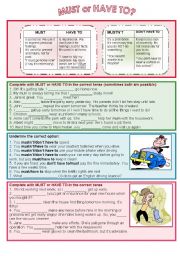



English Exercises Must Or Mustn T




Modals Part Ppt Download




Unit 31 Must Mustn T Don T Need To Essential Grammar In Use Video Test Youtube




Test English Prepare For Your English Exam




Modal Verbs Should Ought To Have To Y Must



1




May Might Must Helping Verbs Worksheets K5 Learning
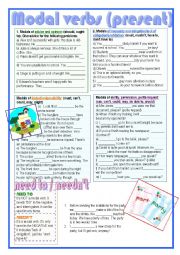



English Exercises Modals Should Shouldn T Mustn T




How To Teach May Might Could Must Off2class




No More Mistakes With Modals 3 Easy Rules Youtube
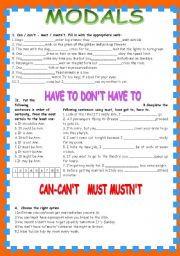



English Exercises Modals Should Shouldn T Mustn T
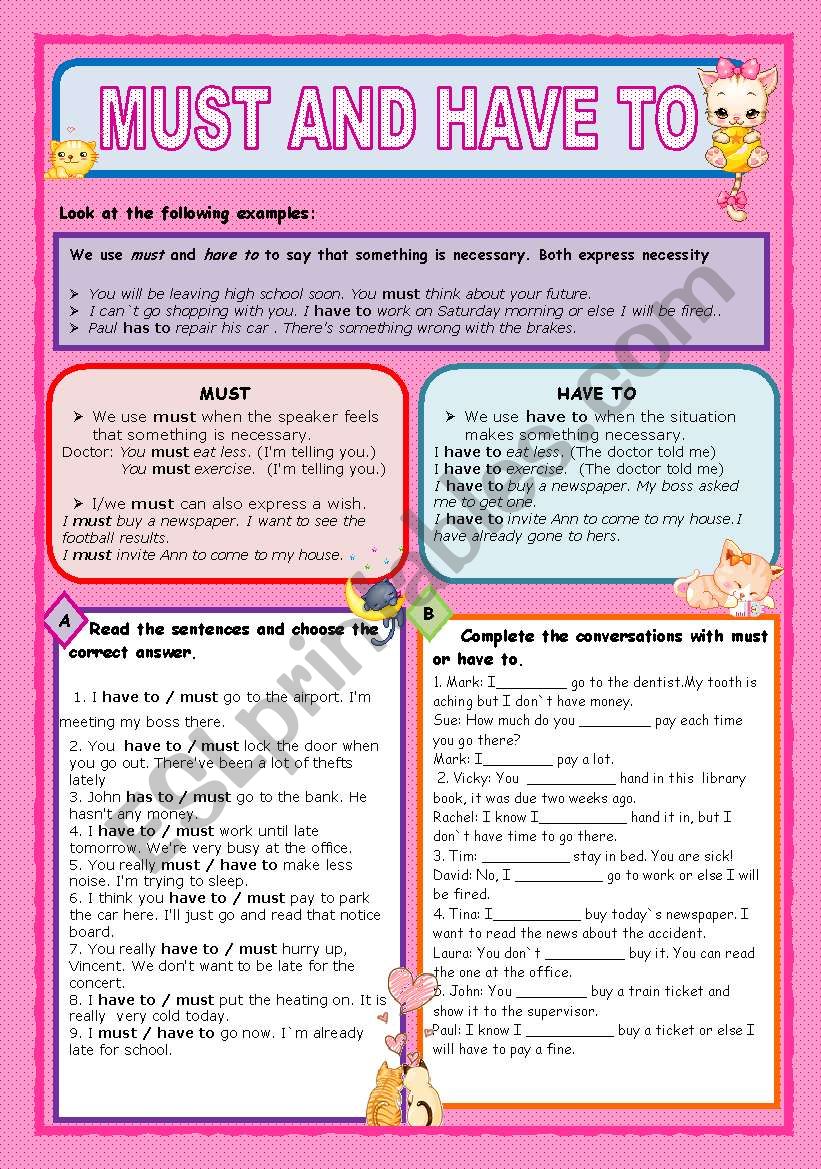



Must And Have To Esl Worksheet By Rosario Pacheco
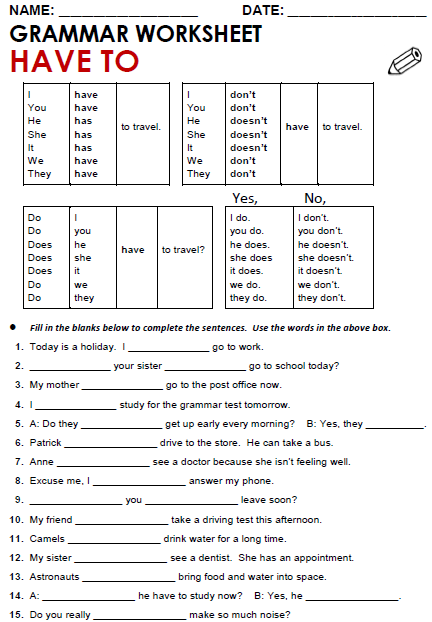



Have To All Things Grammar




57 Free Have To Worksheets




How To Teach May Might Could Must Off2class




Modals Exercises For Class 10 Cbse With Answers Learn Cram



2




Modal Verbs Should Ought To Have To Y Must




English Esl Must Or Have To Obligation Worksheets Most Downloaded 132 Results




Modals Must Have To Should Should Have Grammar Businessenglish Com




Must Have To Exercises
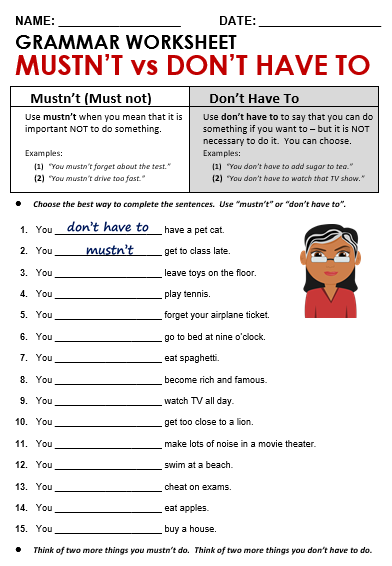



Must Necessity All Things Grammar




Must And Have To Exercises
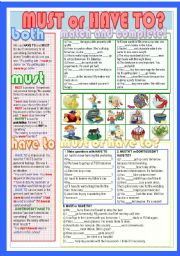



English Exercises Must Or Mustn T
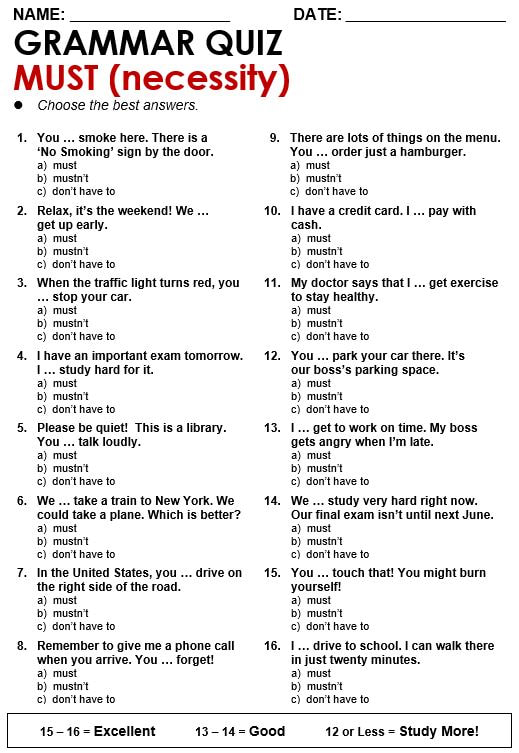



Must Necessity All Things Grammar




Modal Verbs Key English Esl Worksheets For Distance Learning And Physical Classrooms




Modal Verbs Worksheets And Online Exercises




Should Must And Have To English Esl Worksheets For Distance Learning And Physical Classrooms




Direct And Indirect Object Pronouns Questions 1 Object Pronouns Spanish Questions Directions
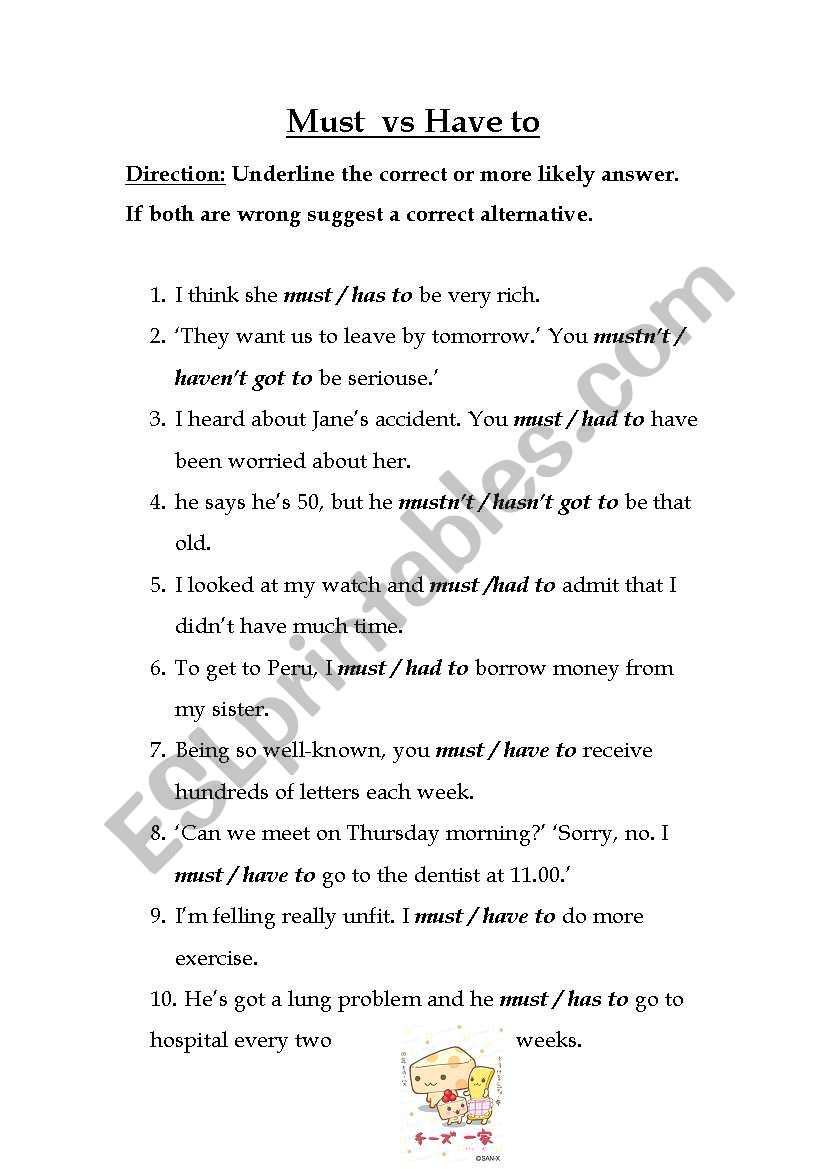



Exercise For Modals Must Vs Have To Esl Worksheet By Bambienoo



1




Advanced Grammar In Use With Answers Flip Book Pages 51 100 Pubhtml5




Take Vs Get Includes Examples And Exercises




Solved Instructions Be Sure To Give Supporting Recomme Chegg Com




English Esl Must Or Have To Obligation Worksheets Most Downloaded 132 Results
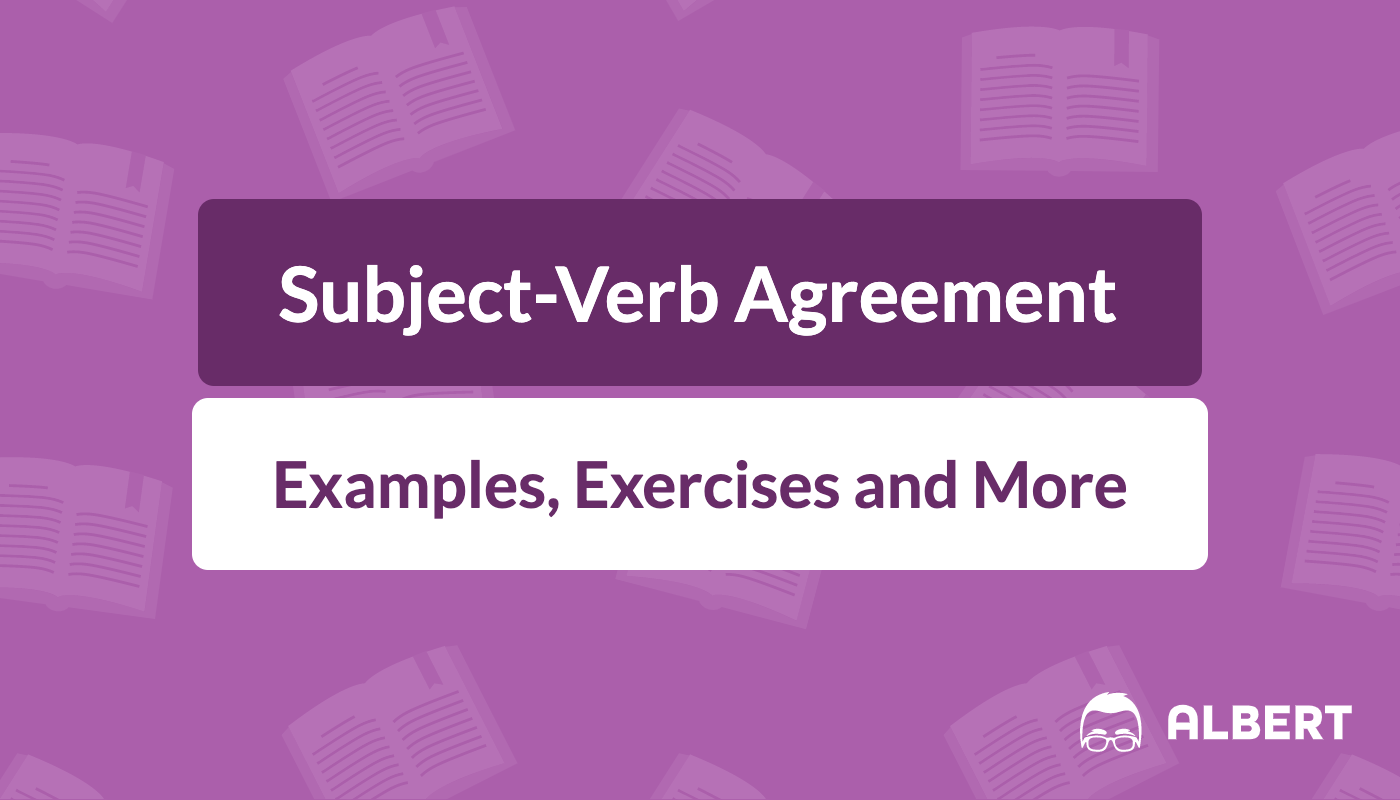



Subject Verb Agreement Definition Examples Exercises Albert Io




English Esl Must Or Have To Obligation Worksheets Most Downloaded 132 Results




Have To Do Not Have To Must Worksheet
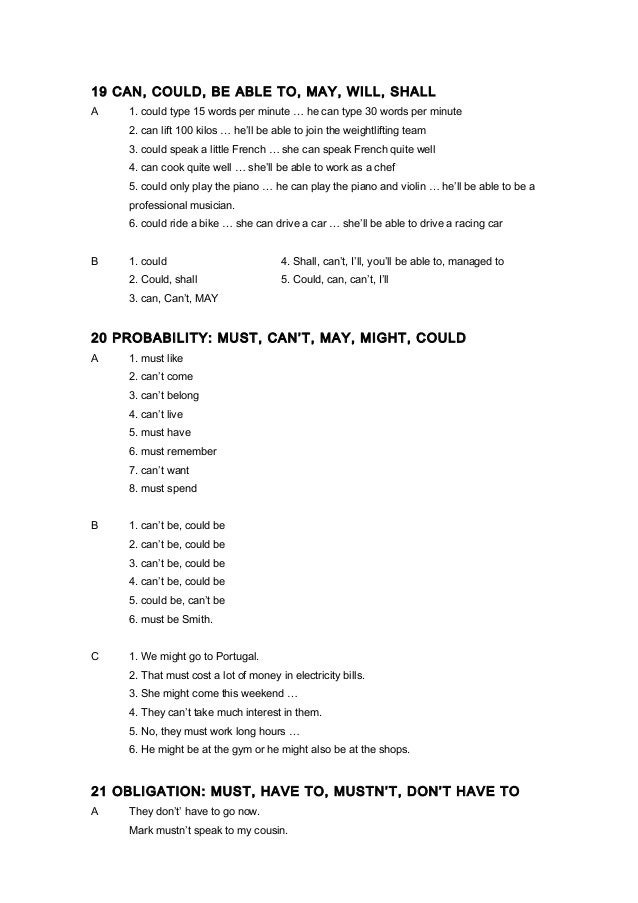



Modal Verbs Extra Worksheets Answer Key
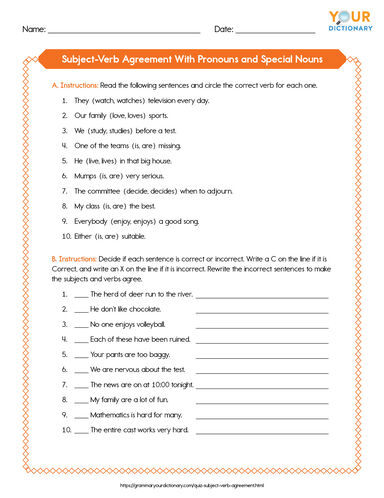



Subject Verb Agreement Quiz Two Practice Tests With Answers




Test English Prepare For Your English Exam
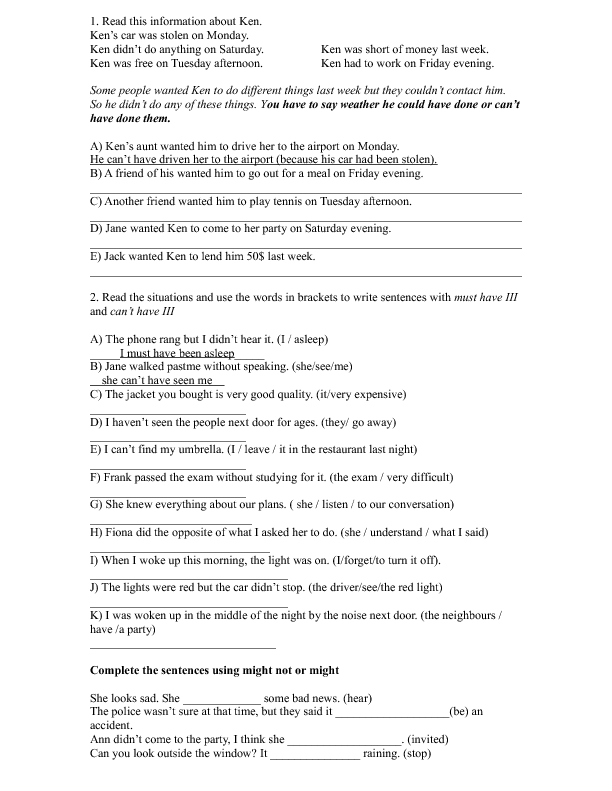



66 Free May Might Worksheets
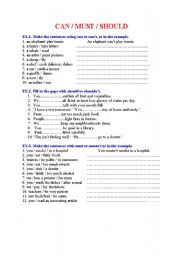



Can Should Must Exercises On Modal Verbs Esl Worksheet By Ania Z
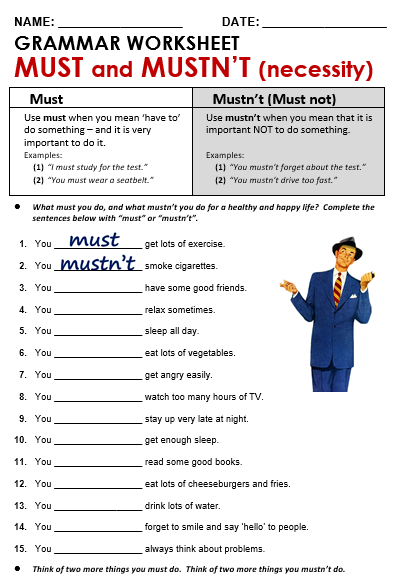



Must Necessity All Things Grammar
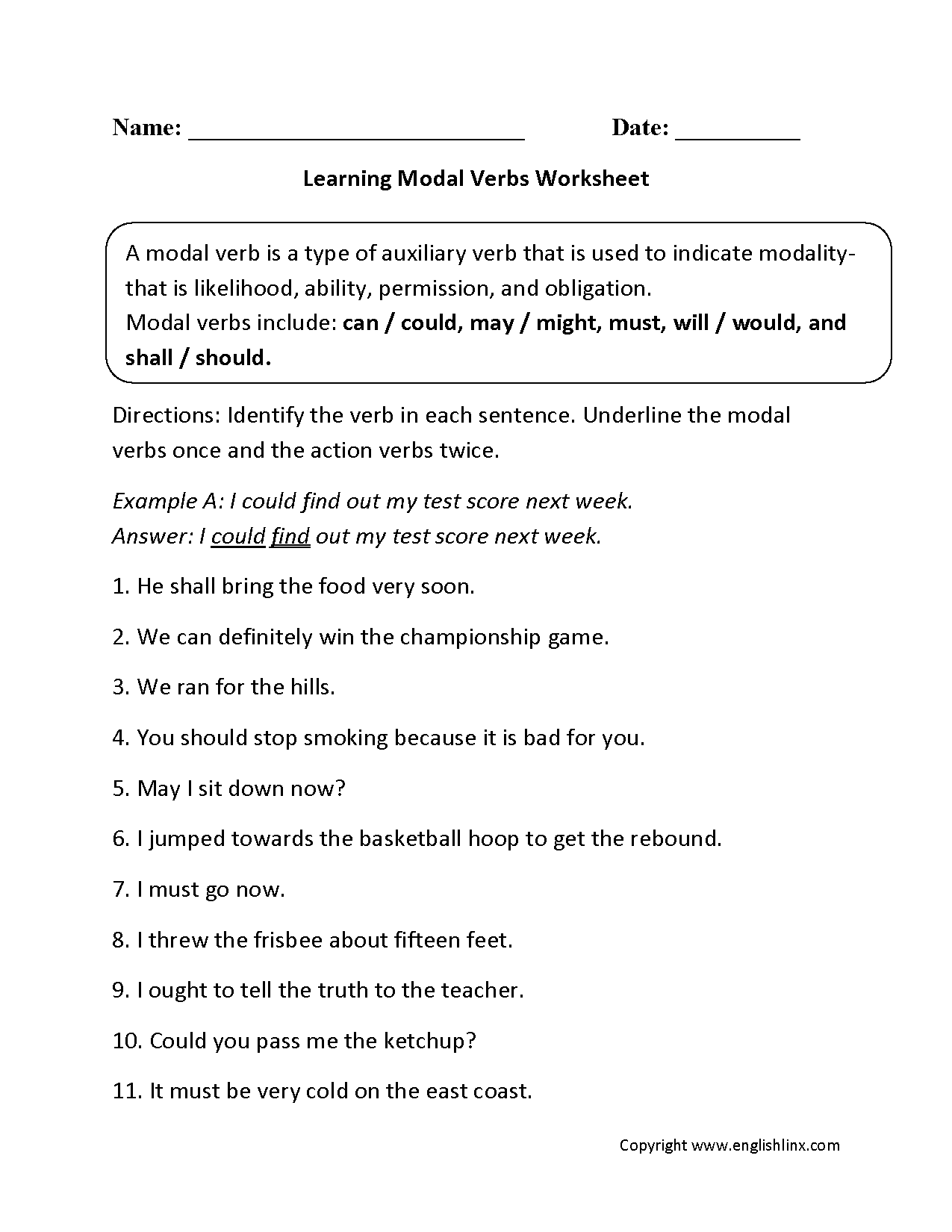



Verbs Worksheets Modal Verbs Worksheets




Modal Verbs The Condiments Of English English Live Blog




Must Be Good In Exercise Science To Answer According Chegg Com




Modal Verbs Must Mustn T Should Shouldn T Don T Have To Worksheet




Modal Verbs Worksheets And Online Exercises




Openstax College Physics Solution Chapter 14 Problem 9 Problems Exercises Openstax College Physics Answers



Speculation And Deduction Modal Verbs




Modals Must And Mustn T Learnenglish Kids British Council




Solved Problem Set 2 Please Complete The Following Exerci Chegg Com




70 Cae Key Word Transformations Answers
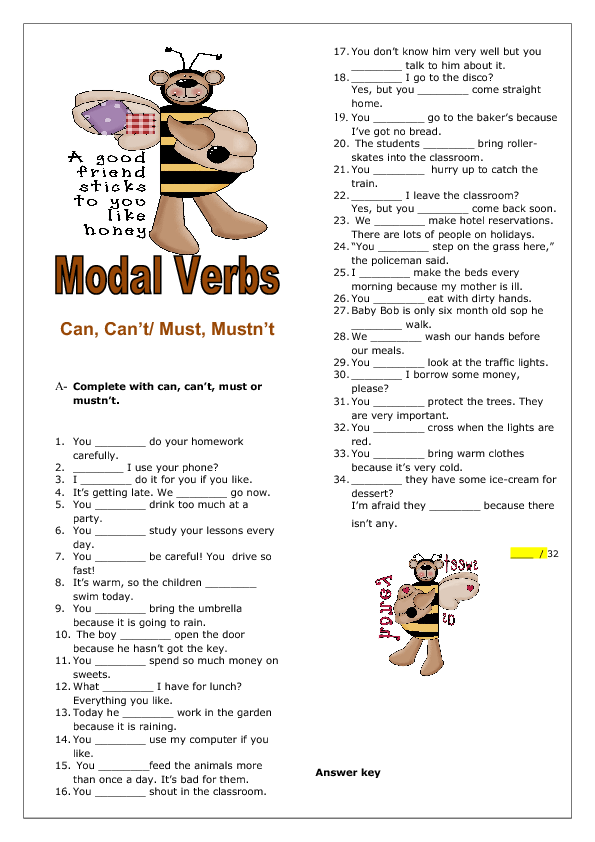



Can Can T Must Mustn T Elementary Worksheet




57 Free Have To Worksheets




Must Vs Have To English Esl Worksheets For Distance Learning And Physical Classrooms




Must Mustn T Have To Don T Have To English Esl Worksheets For Distance Learning And Physical Classrooms




Must Mustn T Have To Don T Have To Worksheet




Conjunctions Exercises With Answers Examplanning
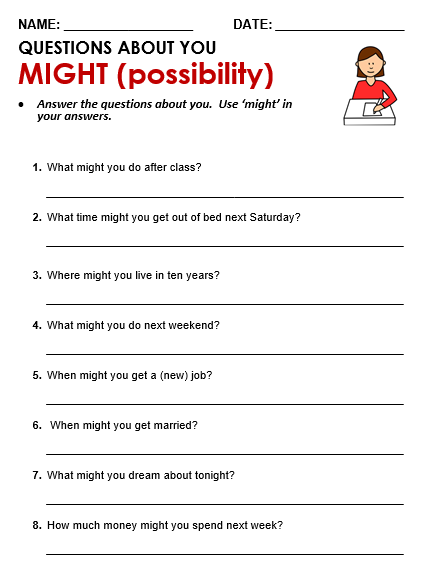



May And Might All Things Grammar



0 件のコメント:
コメントを投稿